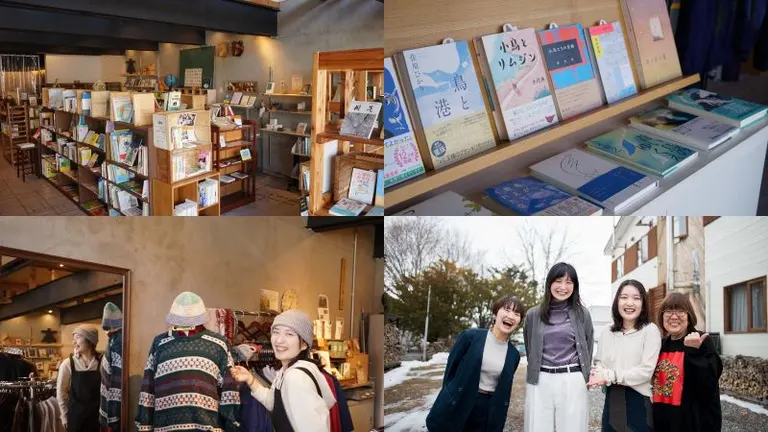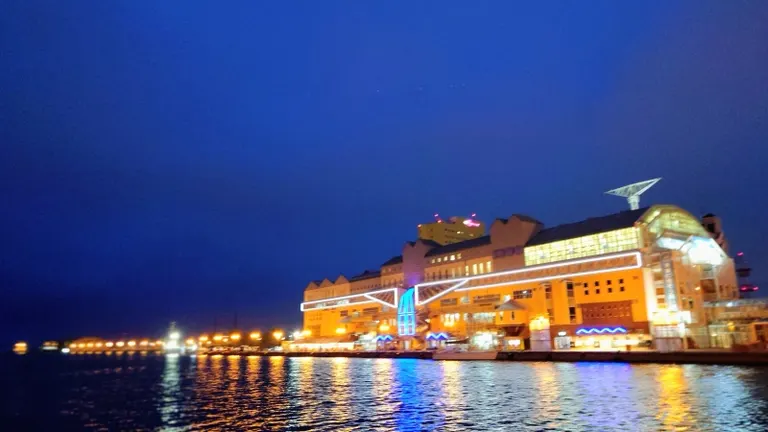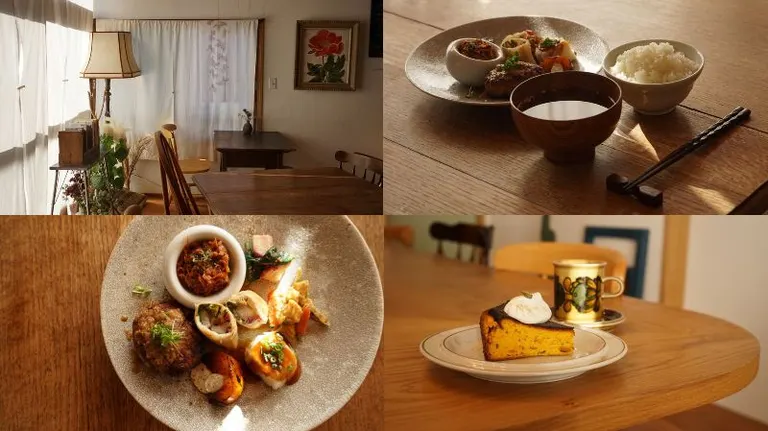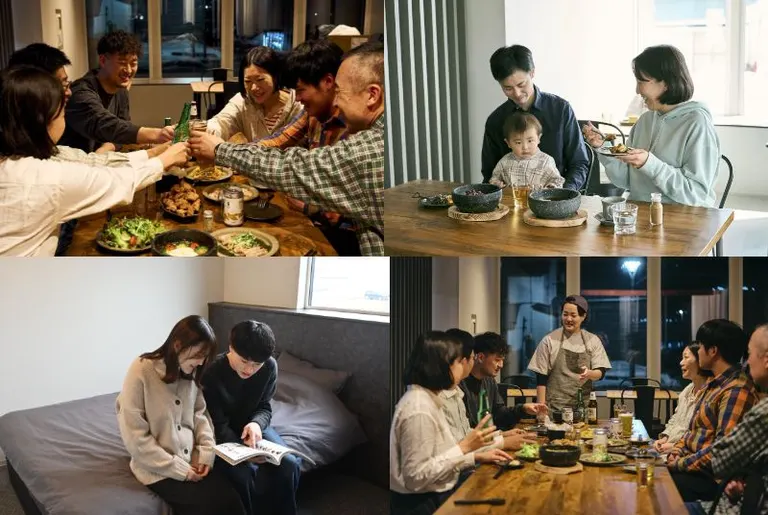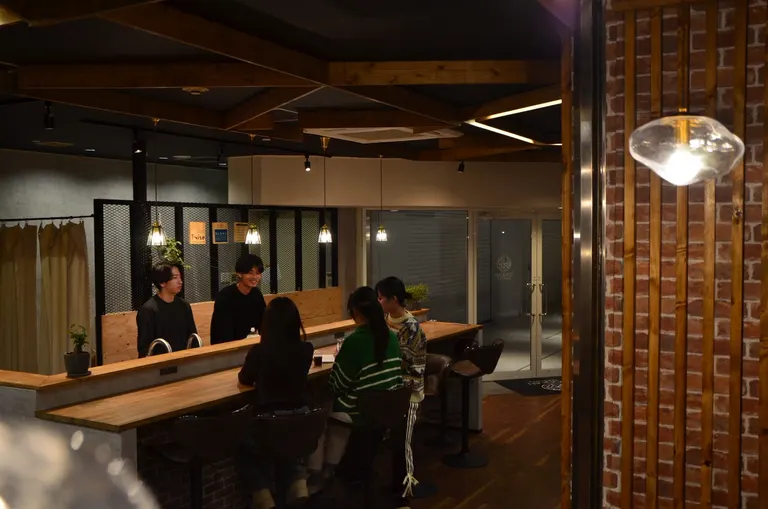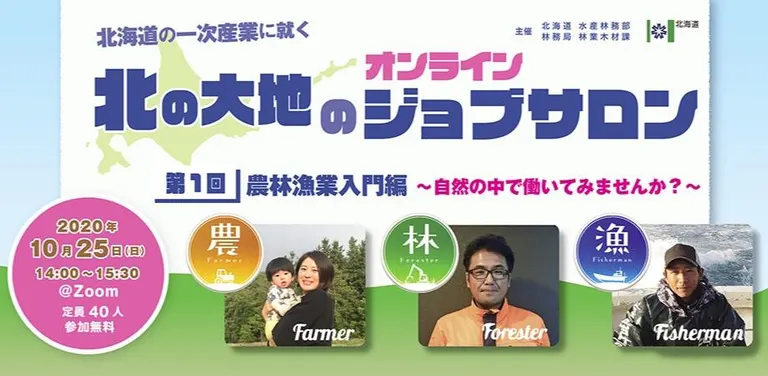
ARTICLES
Better to Try and Regret Than Regret Not Trying! Report on the 1st Northern Land Job Salon
The theme was "An Introduction to Agriculture, Forestry, and Fisheries," and the three guests are all involved in these industries in various parts of Hokkaido. We asked them about what led them to work in primary industries in Hokkaido, and their thoughts on their work and life.
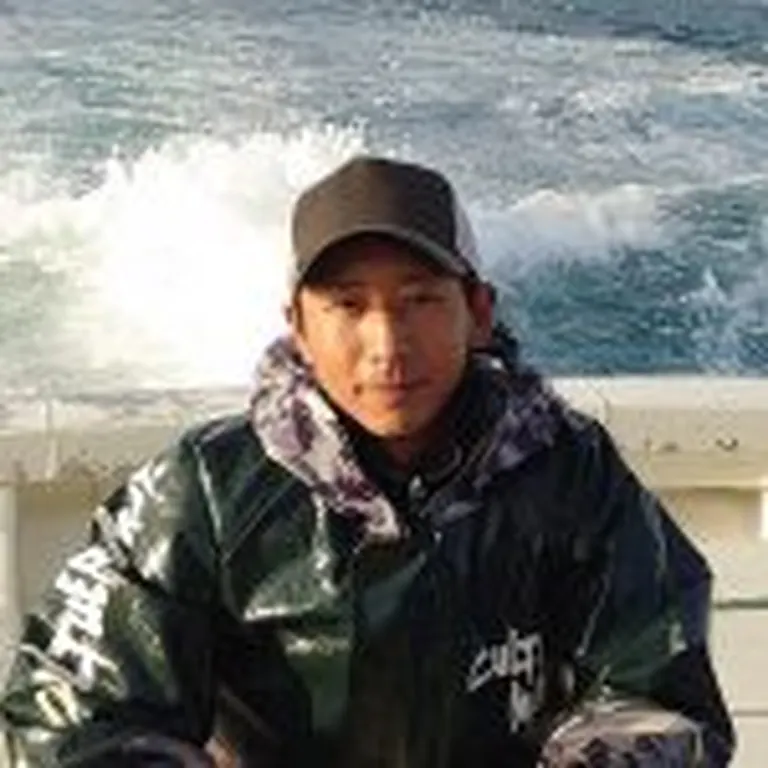 Fisheries / Shosanbetsu Village / Kita-Rumoi Fisheries Cooperative Trainee
Hiroyuki Saito
Fisheries / Shosanbetsu Village / Kita-Rumoi Fisheries Cooperative Trainee
Hiroyuki Saito
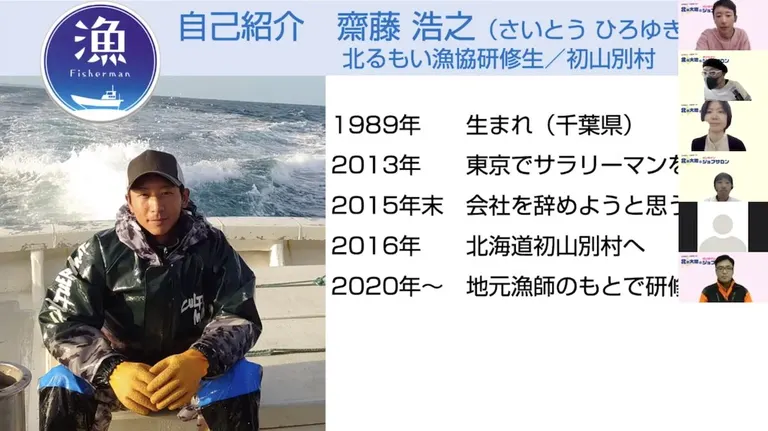
Originally from Chiba Prefecture, he moved from Tokyo to the northern Hokkaido village of Shosanbetsu in 2017 as a Local Vitalization Cooperator.
He came to appreciate the unique advantages of a small village that can't be found in the city, such as the richness of nature and the warmth of the people.
Feeling that a career in fishing could offer a sense of fun and fulfillment that he couldn't get as a company employee, he began training under a local fisherman this May.
What led you to work in fisheries in Shosanbetsu Village?
When I was a salaryman in Tokyo, I saw a hanging advertisement on the train on my way home, exhausted from work. I wondered what it was, so I looked it up when I got home and thought, "Ah, I have to go there!" I immediately decided to go to Shosanbetsu Village.There were six main reasons for this.
② I felt constrained working as a salaryman and couldn't imagine ending my life working that way!
③ I wanted to try a new challenge!
④ I felt that important parts of being human were fading away in the hustle and bustle of the city...
⑤ I found my life, which had followed a conventional path, to be uninteresting!
⑥ I wanted to be involved in primary industries, which are vital to Japan!
What kind of place is Shosanbetsu Village?
It has a population of about 1,200 people, and it's a major producer of giant Pacific octopus, salmon, and glutinous rice.As for the climate, there are many windy days. The winters are especially harsh, and it's not uncommon to open your front door to a complete whiteout... On clear nights, the stars are incredibly beautiful.
Because the population is small, you form deep connections with each person. People share meals with you, or give you portions of fish and vegetables. There's a richness here that you can't experience in the city.
Things I've realized since starting work in fisheries
The slide shows a scene where we're about to go out and catch salmon. The work isn't just about going out to fish; we also do maintenance on the fishing nets and ropes in the warehouse.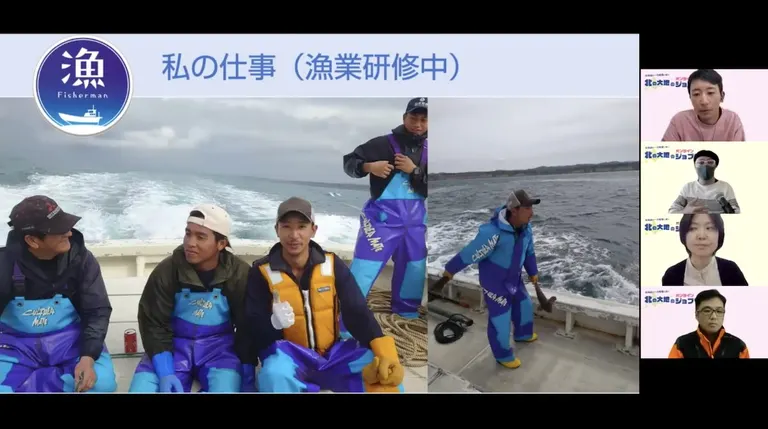
Inside the boat, heading out for salmon fishing
The training for fisheries can last up to three years, and the duration varies by location. The training period might seem long, but in fishing, there are many things you can't do if you don't know how, so I'm learning those aspects thoroughly.I've realized a few things since I started fishing. If you're thinking about getting into fisheries, you might find this helpful.
・Surprisingly, I didn't get seasick!
・It gets very hot in the summer! When you're offshore on a day with no wind, there's no shade, so it's scorching!
・You might have an image of fishermen being all about brute force, but you don't have to give up just because you're not strong!
・Once you're out on the sea, you can't prepare things, so advance planning is necessary!
・It's physically tiring, but the mental stress has been significantly reduced compared to my salaryman days!
The difference in free time compared to my salaryman days in Tokyo is stark, and I have plenty of time for my hobbies.
On my days off, I enjoy surfing and snowboarding, do housework, or visit friends.
A Message for You
If there's something you want to do, don't stagnate. Just move forward with whatever it is.I personally want to live a life where I can say, "I have no regrets in my entire life!" When you start something new, people around you might have all sorts of things to say, but it's your life, so live it to the fullest!
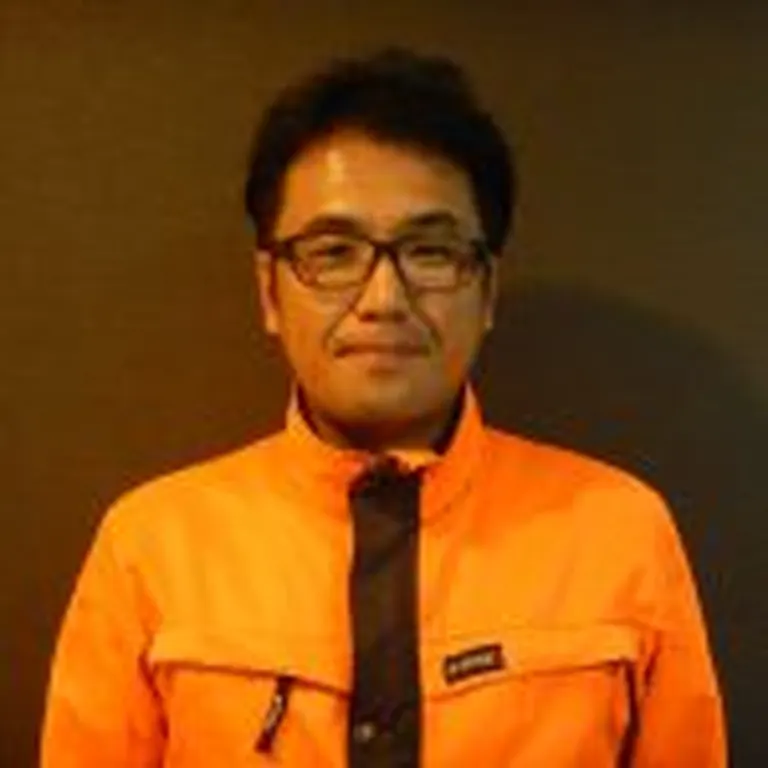 Forestry / Nemuro City / Ishiguro Co., Ltd.
Shinji Miyata
Forestry / Nemuro City / Ishiguro Co., Ltd.
Shinji Miyata
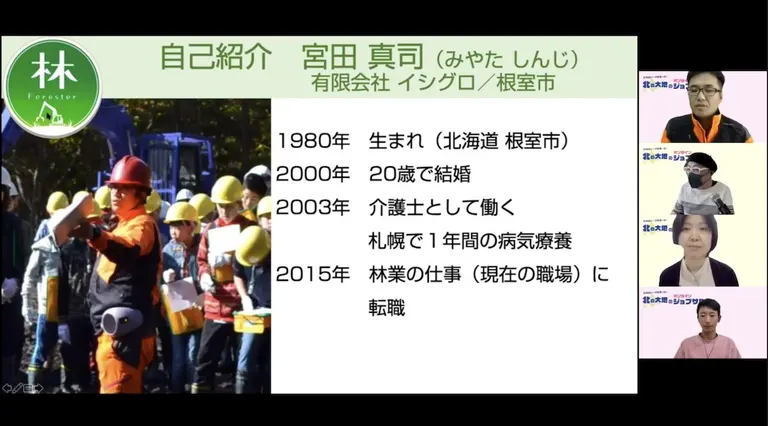
He used to work in nursing care in Nemuro City, but after recovering from an illness, he decided to try a different job and switched to a forestry company six years ago.
He finds fulfillment in the work of forestry, which is not just about cutting down trees but also about planting, nurturing, and preserving them for the next generation.
He also feels happy that since starting in forestry, his work starts and ends earlier, allowing him to spend more time with his family.
What led you to work in forestry in Nemuro City?
I originally worked as a caregiver, but I fell ill and had to take a year off to recover. After that, I wanted to try a different job, and what I found was forestry. Since I have three children, the fact that it provided an income to support my family was also a major factor.A look at your daily work
When you think of forestry, the first thing that comes to mind is probably "cutting down trees."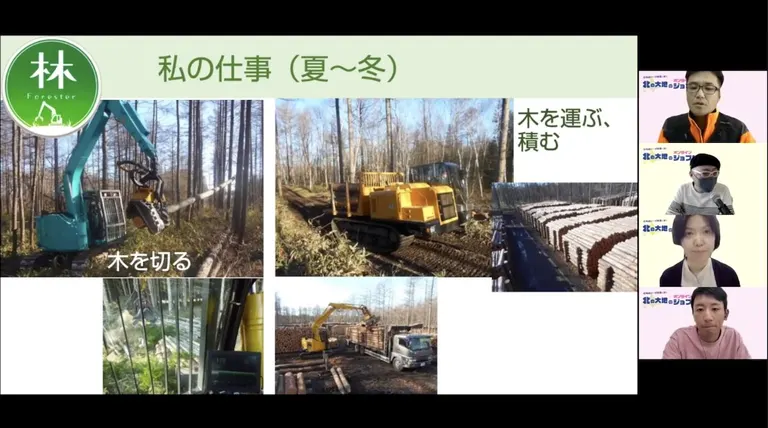
Forestry work
But some of you might be thinking, "Isn't cutting down trees destroying nature?" Actually, I thought so too before I started this job.In reality, the work of forestry isn't about destroying forests; it's about creating them.
If left untouched by human hands, forests become overgrown, and light can't get in. To prevent this, we cut down trees in a process called "thinning." We use a high-performance forestry machine called a harvester to cut trees and bring them down from the mountain.
And to leave them for the next generation, we plant trees, a process called "reforestation," from spring to summer. It takes 50 to 60 years from planting until a tree is ready to be harvested, and it needs to be carefully nurtured.
There are various tasks in forestry throughout the year, such as "weeding" to remove weeds that grow after planting, and "pruning" to grow trees that can be used for lumber.
We also have initiatives where we invite elementary and junior high school students to thinning sites to let them experience it firsthand. Many of the children's eyes light up at the idea of working in nature, and I hope we can get them even a little interested in forestry.
A Message for You
I think many people who are interested in primary industries or who want to work in Hokkaido are nature lovers. Hokkaido truly has a lot of nature, and even the air smells good when you breathe it in. It's especially pleasant in the mountains.Please come and experience it for yourself.
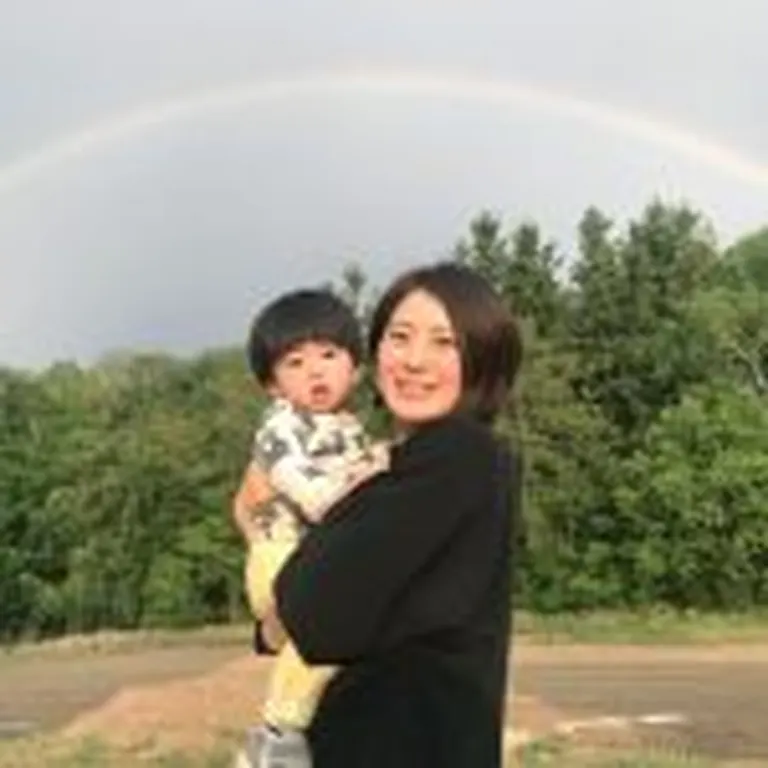 Agriculture / Bihoro Town / Scheduled to start farming in FY2022
Sachie Yoshida
Agriculture / Bihoro Town / Scheduled to start farming in FY2022
Sachie Yoshida
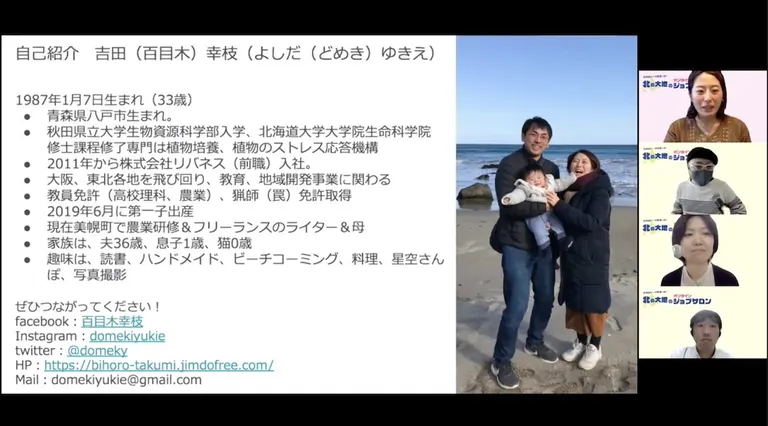
Originally interested in agriculture, she and her husband left their corporate jobs after she became pregnant. They moved to Bihoro Town in the Okhotsk region in 2019. While raising their child, she is training with her husband, Takumi, with the goal of starting their own farm in 2022.
With agriculture as her focus, she is also involved in projects to promote the charm of the region, and feels a new form of richness and potential in the connections with nature and people.
What led you to work in agriculture in Bihoro Town?
Before coming to Bihoro, both my husband and I worked at a company where researchers gathered to solve various societal issues. There, I was involved in education and regional development, supporting people from various positions in the town to achieve what they wanted to do.That job was very rewarding and enjoyable, but both my husband and I had originally studied agricultural science and were very interested in food production, so we had always wanted to try farming someday.
・When are we going to do it? Instead of supporting everyone else's dreams, we should pursue what we want to do now!
・Is city life truly rich? Seeing my parents' life in Aomori seemed so much richer, and for me, the city didn't feel rich at all!
・When you're involved in regional revitalization through your job, you feel a frustration of only being a supporter... I wanted to be a player within the community myself!
First, we went to a farming fair. There, we met someone from the Hokkaido government, who connected us with the person in charge in Bihoro Town.
We ended up visiting Bihoro Town as if on a trip, and we even got to help with the harvest at a senior farmer's place. After that,
we were very fortunate that Bihoro Town has a great support system, and it was a wonderful environment where many people helped us.
I think it's important to compare regions based on their support systems, but I also think it's important to value personal connections and go with the flow.
What I want to try next
We are currently using a system called the Third-party Farm Succession Program, and we are living in the house of the person we are succeeding. We are also scheduled to acquire 5 hectares of farmland.
Due to the size of our farmland, we have decided to become vegetable farmers rather than field crop farmers, and we will be growing a lot of lettuce. We are starting to understand the costs involved, which is both exciting and nerve-wracking.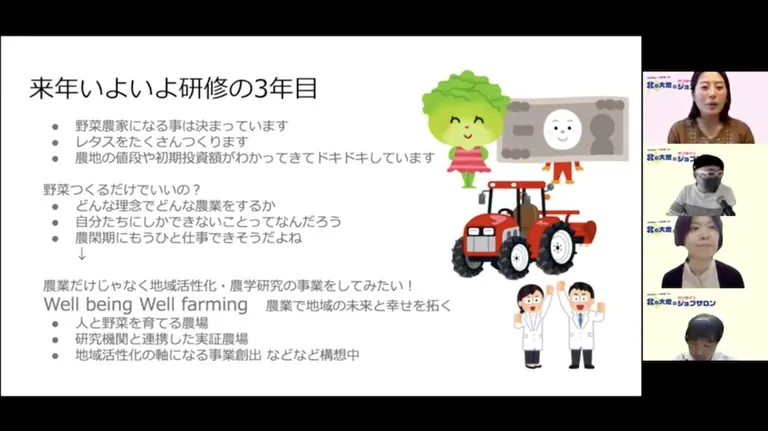
What Ms. Yoshida will be taking on next
We often talk about what kind of farming only we can do.
The word "well-being" has become popular recently, and we think there should be a word like "well-farming."We wonder if there could be a farm that cultivates not just vegetables but also people, or a farm that serves as a site for demonstration experiments in collaboration with research institutions, or a farm that becomes a central axis for regional revitalization...
We have so much to look forward to in the future!
A Message for You
Our guiding principle is, "Better to try and regret than to regret not trying!"To all of you, if there's something you want to do, I encourage you to take the first step!
Summary
We heard from three individuals who are either working in or planning to start careers in fisheries, forestry, and agriculture.All three shared powerful stories of deciding to change careers or move from other regions to take action.
This event was a great reminder that for those who are thinking, "I want to get involved in primary industries in Hokkaido" or "I want to hear more," the most important thing is to take action, even in small steps like participating in an online event.
The next "Northern Land Job Salon" is tomorrow, November 21st (Sat) from 2:00 PM. Please be sure to sign up here!






